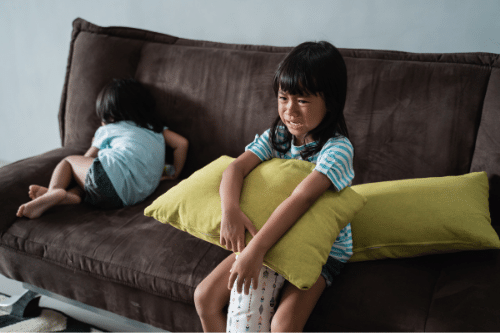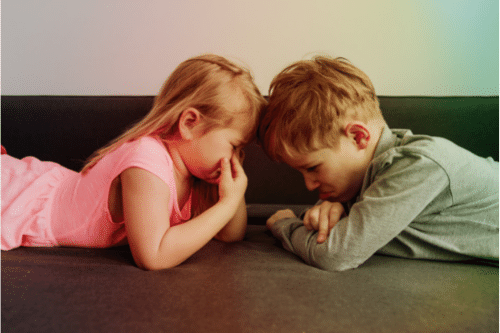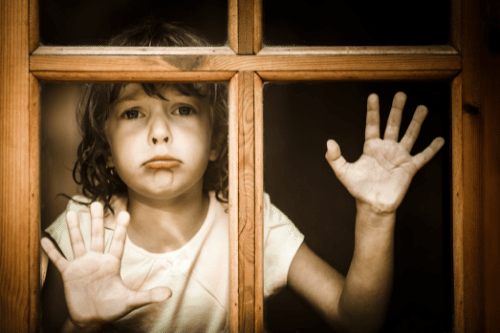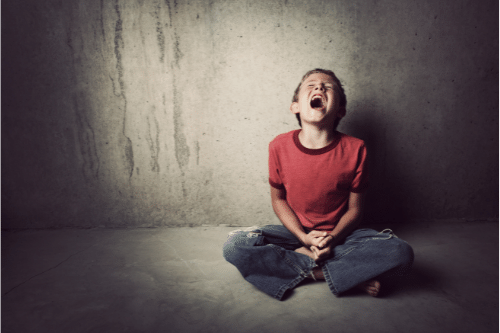___________Table of Contents___________
Brain Development
If you are NOT someone who talks regularly about these types of topics with your children
Identifying Different types of Mental Health Professionals
Teenagers
If you are a parent who does have ALL the talks with your child regularly and they are super chatty with their feelings
My Story
Real Talk
References
Grief Counseling for Children After Loss, or Not?
“Are you going to have your kids talk to someone?” Probably the most common question I’ve received from people since the loss of my husband. I get this question from well-meaning friends and family, other grieving parents and quite frankly, perfect strangers.
It’s interesting to me, because much like politics and religion, how someone parents their children is kind of a private, not-to-be spoken of, taboo topic. Sometimes even the most positive, well-meaning individual can come off quite judgey without intention.
So what do we do? As a concerned friend, as a worried parent, as a well intentioned teacher…. I truly believe this- We need to listen to our children!!
First off, age matters here. Secondly, only you know the ins and outs of your own circumstance. This third one I think every parent needs to hear.
You Know Your Child Best!
something to consider
I will, as always, say this annoyingly important fact: Contact your doctor. I’m not advising anything here and this is my experience, not advice. Read my disclaimer for more information on this. When in doubt, reach out!!

In my eBook, I go into this topic a little more in depth, with interviews with my children and their opinions on this subject. I think their little words are really valuable and quite telling. They actually taught me a lot about how they viewed the loss of their dad.
Brain Development
It’s difficult for us, as parents, to know what our kid’s worry about. That’s because our mature minds don’t think of things in the same way as their developing minds.
This holds true from child to child as well. My seven year old had very different outlooks than my then ten year old son. So let’s look at the science behind this.
A brain is not fully developed until often a person is in their mid to late 20’s! I love this basic break down and they even have a printable PDF and contact information at the bottom of the site (phone and live chat option) if you’re looking for a resource for any mental health questions. You can check it out here1.
The prefrontal cortex is a region of the brain that is one of the most slow to complete development, or maturity, and doesn’t happen until near the age of 25!2 The prefrontal cortex is responsible for:
- future considerations2/planning
- attention
- focus
- thought organization2
- problem solving2
- inhibition of inappropriate behaviors2
- processing consequences of actions2
- impulse control2
- modulation of intense emotions2
- and so much more!
Is it any question as to why so many teens show immaturity in their behaviors!
So what does this mean?
You can’t talk to your children as adults and expect an adult understanding. I speak to my children as adults often, but I realize that the comprehension and processing is not the same.
When giving explanations, I try to make things age appropriate, but I have never said that they are too young and we’ll talk about a subject someday when they’re older. If they’re asking, clearly they are of an age where the conversation needs to happen.
In my opinion, kids are too young to deal with loss….But it happens! They shouldn’t have to deal with any of this. They should maintain their youth and innocence as long as possible. Yet here we are, so it’s time to talk.
If you are NOT someone who talks regularly about these types of topics with your children
If you don’t talk to your children regularly about life issues, feelings, worries, etc., then I do think it’s in a child’s best interest to have them talk to someone who is trained in dealing with children and loss. How to go about grief counseling for children:
- If you’re struggling to find resources I have great news! This is the era of digital information! Search for a mental health practitioner in your region, or online, who deals with grief and works with children.
- Ask a Facebook group in your area of local parents. Trust me, Facebook will give you an unfiltered pool of suggestions to look into! Just remember, one person’s experience is one person’s experience. If there’s a theme, I pay more attention.
- Your local Hospice, or VNA, is a great resource. They offered this as a free service to my family before my husband’s passing.
- Another great resource is your child’s pediatrician. They likely have experience with grief counseling for children and have sent kids to a particular counselor in the past, so they likely can suggest a good match for your family.
Identifying Different types of Mental Health Professionals
Something that I think may be helpful to differentiate: What’s the difference between a Counselor, a Psychologist, a Psychiatrist, a Psychoanalyst, or a Psychotherapist?! I think a lot of us use counseling, or therapy, as a catch-all term for any of the above, but let’s break it down. (Bear with me as I bounce around between nouns, verbs and the like. I’m attempting to give you the best definitions and they are not always found in the same parts of speech.) The following are defined by Merriam-Webster:
Counseling– Professional guidance of the individual by utilizing psychological methods especially in collecting case history data, using various techniques of the personal interview, and testing interests and aptitudes.3
Psychologist– A person who specializes in the study of mind and behavior or in the treatment of mental, emotional and behavioral disorders: a specialist in psychology.4
Psychiatrist– A medical doctor who diagnoses and treats mental, emotional, and behavioral disorders : a specialist in psychiatry.5 Medications are likely a tool in their box, as opposed to some of the other professionals.
Psychoanalyst– (psychoanalysis): a method of analyzing psychic phenomena and treating emotional disorders that involves treatment sessions during which the patient is encouraged to talk freely about personal experiences and especially about early childhood and dreams.6
-It’s, more or less, the person who performs a type of psychological therapy that attempts to treat mental disorders by looking into how the conscious and subconscious parts of the mind interplay. It looks at repressed issues and uses techniques like free association and dream interpretation to attempt bringing repressed matters into the conscious mind. Or at least this is my interpretation and understanding.
Psychotherapy- Treatment of mental or emotional illness by talking about problems rather than by using medicine or drugs.7 This can also include hypnosis.
To be completely honest, this list pales in comparison to the detailed break down given on the NAMI website. I would definitely check that out if you’re looking for either more information on who prescribes medications, or what degree level each of these titles holds, etc.
This was just a very brief overview compared to what NAMI provides. Another bonus is they have a very cool Helpline where you can enter your State and get some immediate help.
Side note- Don’t forget to check credentials, certifications, licenses and accreditations of the Provider you choose. After all this is your child’s mental health!
Teenagers
Teenagers deserve a section all to themselves! I just love this research article2, so if you’re like me and want to see the science behind it all in some pretty cool detail, check the above article out.
For me the takeaway is that there is real science behind just how much more at risk our teens might be to turn to risky behaviors, if they’re not given a really great outlet; as your child’s brain is likely done growing in size by their teen years, so much development in certain regions (or cortex’s) is still happening into their twenties!
Why does this matter? These are the regions responsible for planning, controlling impulses and rational decision making!
Basically, adolescence is a time of neurological imbalances, because there is maturing earlier on in the subcortical brain regions and then somewhat delayed maturing of prefrontal control areas. This can lead to emotional experiences where the limbic (reward regions) win over the more immature prefrontal system;2 (which remember is responsible for planning and control)!
My interpretation of this is that teenagers in emotional situations (such as grief) have a higher probability of emotions affecting their behavior, more so than rational decision making and sound judgement. This can mean that they are at a higher risk for irrational behavior and decisions, just based on science.
Put peers and hormones in the mix and…. Well this could mean that things can spiral before you even see it coming. When in doubt- reach out!
I apologize for geeking out a bit- I love the science!
Waiting for a problem to arise is probably not the best way to deal in this circumstance. Keep in mind, however, that teenagers are not big fans of being told what to do. It’s best if they play a role in deciding what happens next. Let’s remember, currently their life is already out of control and they may want to hold onto what little they feel they have left; like their own decision making.
Sometimes if given a choice, like you don’t have to talk to someone else if you don’t want to, you can talk to me. That might just give them a sense of getting to choose for themselves between two things-
- Talk to you
- Talk to a professional
Kind of a win-win.
If they want to talk to someone other than you, there are many choices. At school the Guidance Counselors are a great resource, as they are available throughout your child’s day. They are also more trained in identifying if the need goes beyond their skillset.
If they don’t want the attention at school, they may prefer one of the options listed above.
If you are a parent who does have ALL the talks with your child regularly and they are super chatty with their feelings…
A little food for thought- The fact that you went online and found my blog, may point to some doubt in what you should do. Any wavering really should lead to getting a second opinion from a qualified professional.
If you feel like you are your child’s favorite go-to to talk, then you have a big job on your hands! My kids were so specific in their wants and needs. They spelled out what they did and did not want to have happen next.
My very first step, on the day after my husband passed, because I knew it was a priority, was to contact my kid’s school. I sent an email to their teachers, as these were the two email addresses I had readily available.
This was what I sent:
My husband passed yesterday, in our home with the boys close by. He’s at peace now and the suffering for him has ended. The suffering for us carries on, but we’ll get through it together. Please protect my sweet boys hearts at school as they heal, as you always have. Please pass this email along to the rest of the faculty/staff as they have so many special supportive people who have and will be crucial to their recovering.
They do not want to be pulled from class, or any special attention drawn to this. They cry openly at home and we talk very openly. They know you are all there if and as needed. A few of their friends know and the kids know at any time if it is all just too much they may come home for the day. Thank you for your continued help with this.
On a side note, my husband was an amazing community man and basketball coach for the entire K-2 group for several years. He also coached 3-4 boys and has kids who are now all the way up through the 6th grade in your school.
Word is quickly spreading and I’ve had a few teary kids already reaching out about the loss of their beloved coach. As I talk to the kids they have said heart wrenching things like if they can’t play on Coach Barry’s team, they never want to play again. I’ve explained how it would honor his memory so much to watch them play from heaven and be able to be proud of the super stars that he helped coach and how he would be incredibly sad if any of them gave up because of him.
They are all so amazing and talented. Having heard this same story now from 3 different families, I just want it on your radar that there are some sad little hearts in your school on Monday. Please reinforce to any of them that may talk to you that same message. He adored coaching and everyone of those kids were special to him. He wants them to succeed.
Thank you,
Heather
This is what happened:
My oldest son unfortunately did get pulled from class. Listen, this isn’t a perfect dance. Everyone is trying their best to support your child and just as I probably would have done, they wanted to check in with the child themselves just to let them know they were there if they were needing anything.
Don’t get mad at the professionals. As you yourself are going through the roller coaster of emotions and stages of grief, anger may be just waiting for someone to pounce on. This is not the time to burst.
Anyone who is putting your child as a priority right now, should probably be thanked, period. Did it cause a little blip in my child’s trust with me- sure. I was able to explain to him though, why they felt it was important and he understood. I also gave him the okay to speak up and tell them his wants and tell me if they continued to not listen.
They didn’t bother him again, other than his teacher privately developing a signal that he could use if he needed a moment.
Both of my kid’s teachers stayed in close touch with both my kids and myself and were so thoughtful during important milestones, like their first Father’s Day at school, and always made things so smooth for them. It was crucial that they were a part of this team of people keeping a close eye on my children.
As soon as loss is a reality in any child’s life (even if just a coach, teacher, or friend’s parent) I think someone needs to check in with that child and help them navigate how they’re feeling.
Another thing to consider is that even if usually you are a great communicator with your child/children, you too are grieving right now! You are likely distracted by a million little things and it’s going to be easier than usual to not have your full attention on your kids. Having them speak with a professional may just be one less thing on your already full plate.

This is not to say that you get to neglect your parental duties. Even if your kid’s receiving professional help, you still need to talk to them regularly and be fully invested in their and your mental health.

I will not downplay the difficulty of taking on the role of the person my kid’s spoke to about their feelings. As I alluded to, I opted for not sending my kids to counseling. At least thus far. This was at their request and I did not decide on it lightly.
I weighed out several things in making my decision and committed to the following:
- I watched behavior to be sure that things weren’t changing.
- I asked them regularly how they were feeling.
- I asked them regularly if they wanted to talk to anyone else who might be better trained and know how to help them with their feelings.
- I observed them with their friends and with each other and by themselves!
- I really didn’t give them any leniency in behaving as was always expected and held them to the same standards they had before their loss.
- I watched their grades and reports from teachers closely for any deviations.
- I watched their sports closely- sportsmanship, aggression, interaction with others, or lack thereof.
- I asked those closest to us for their opinions and observations.
- I LISTENED! Carefully. Tried to read between the lines. Asked the hard questions.
- I spoke to them about how I was feeling and asked if they felt the same.
- I let them see me grieve. They were learning how and that it was okay to cry and okay to live. How I behaved was important to how they learned to cope.
- I watched sleep patterns. Were they sleeping more, were they sleeping less?
- I gave them a list of people (friends, church members, family, teachers, counselors, each other) who they could talk to at any time.
- I was NEVER closed off to the idea of changing the plan if anything varied, or I had any doubt.
Whatever you decide to do, I recommend keeping a trusted psychologist, or counselor’s number close.
If you continue to ride the fence, maybe you go to see someone just one time and ask them what they suggest. Maybe just a periodic check in is all you will need, or want.
After a great loss, ask yourself, if you miss something and things go wrong, can you really live with the weight of additional hurt on your shoulders. Would you have regret that you didn’t take the step to get them seen?
I will never take unnecessary risks with my children. You can read more about just how I decided to hold off on counseling personally in my eBook, The Weeping Widow.
It’s still a daily job, watching out for my children’s mental health. As parents I think this is a job 24/7 regardless of if your kids are dealing with loss, or not.
At the risk of being obnoxious, I’ll say it again!

When in doubt, Reach Out!
References
- U.S. Department of Health and Human Services. National Institutes of Health. NIH Publication No. 20-MH-8078. Revised 2020
- Konrad K, Firk C, Uhlhaas PJ. Brain development during adolescence: neuroscientific insights into this developmental period. Dtsch Arztebl Int. 2013;110(25):425-431. doi:10.3238/arztebl.2013.0425
- Merriam-Webster. (n.d.). Counseling. In Merriam-Webster.com dictionary. Retrieved August 1, 2021, from https://www.merriam-webster.com/dictionary/counseling
- Merriam-Webster. (n.d.). Psychologist. In Merriam-Webster.com dictionary. Retrieved August 1, 2021, from https://www.merriam-webster.com/dictionary/psychologist
- Merriam-Webster. (n.d.). Psychiatrist. In Merriam-Webster.com dictionary. Retrieved August 1, 2021, from https://www.merriam-webster.com/dictionary/psychiatrist
- Merriam-Webster. (n.d.). Psychoanalysis. In Merriam-Webster.com dictionary. Retrieved August 1, 2021, from https://www.merriam-webster.com/dictionary/psychoanalysis
- Merriam-Webster. (n.d.). Psychotherapy. In Merriam-Webster.com dictionary. Retrieved August 1, 2021, from https://www.merriam-webster.com/dictionary/psychotherapy





